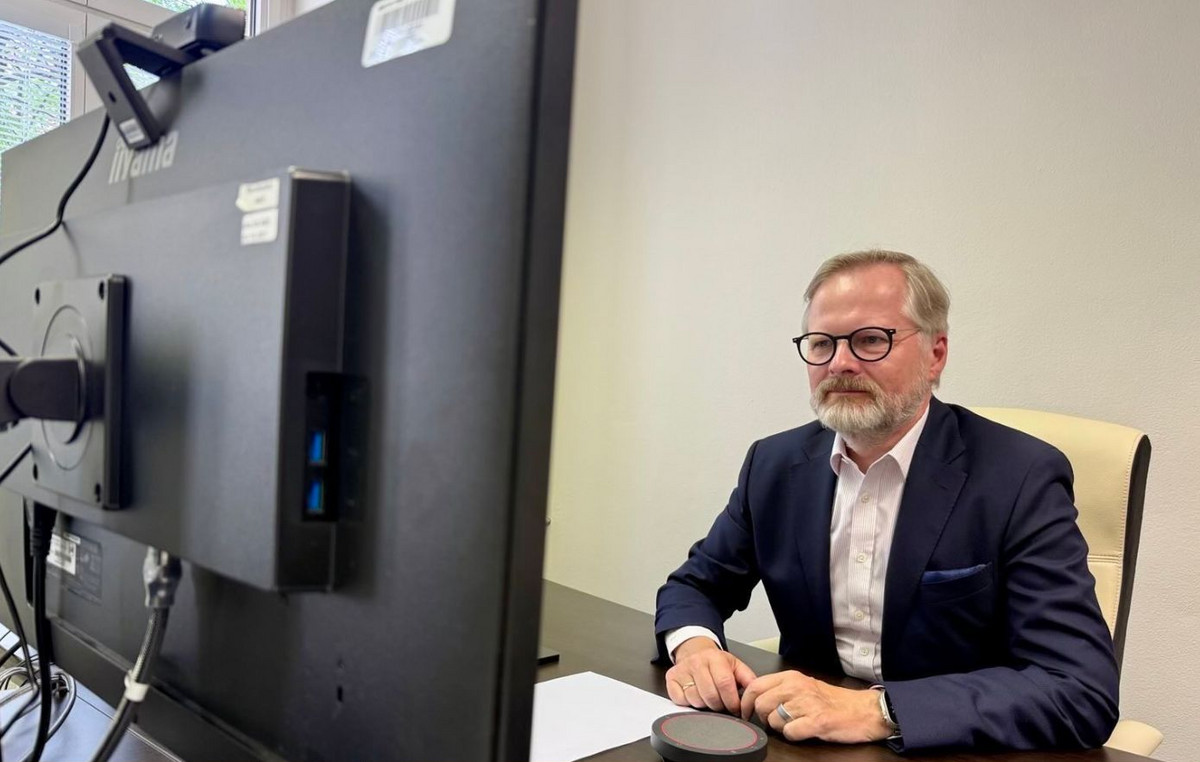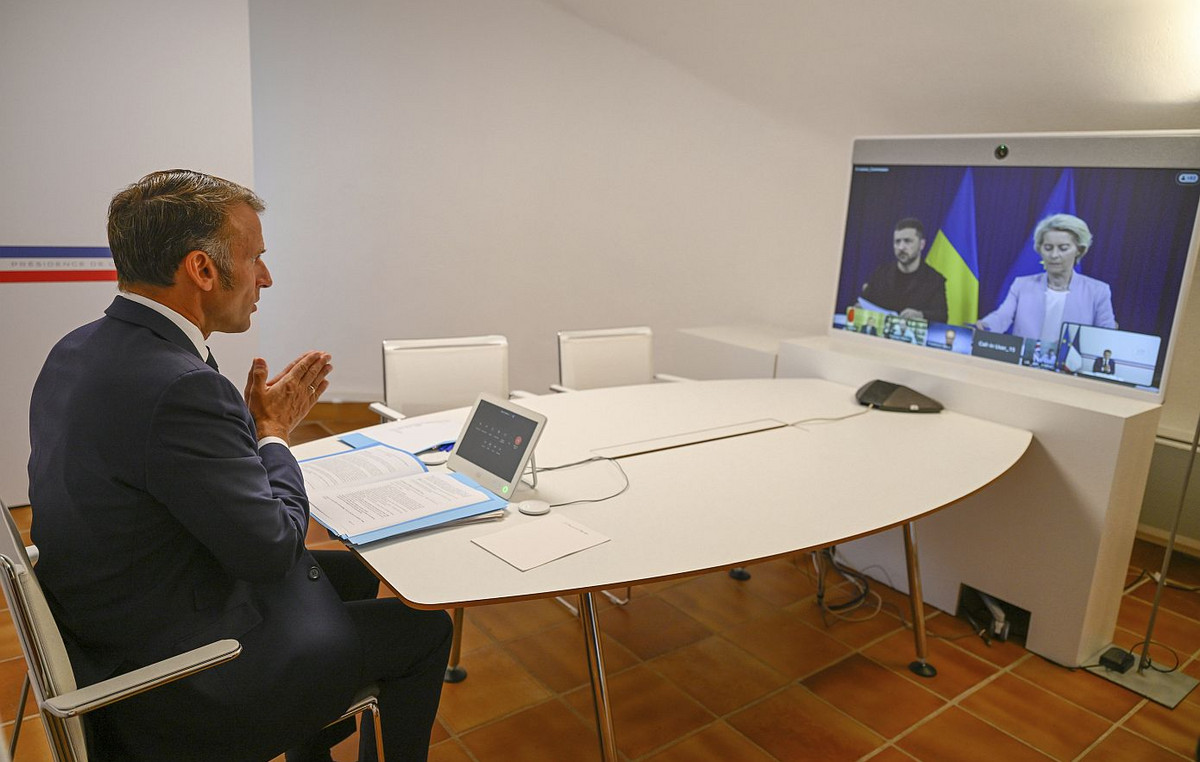As the public scours Elon Musk’s Twitter feed for clues as to how the billionaire entrepreneur intends to run the social media platform he’s buying for $44 billion, one mysterious point stands out: “verify all real humans,” said in its publication after the announcement of the purchase.
This cryptic proposal is vague enough to keep people guessing what Musk has in mind, but specific enough to offer several possible avenues as he seeks to shape Twitter more to his liking.
🚀💫♥️ Yesss!!! ♥️💫🚀 pic.twitter.com/0T9HzUHuh6
— Elon Musk (@elonmusk) April 25, 2022
For example, Musk could try to require real names on accounts. Or maybe it continues to allow aliases but requires photo identification or integration with third-party services where users are already known.
Depending on the outcome, the plan could have major ramifications for the hundreds of millions of Twitter users.
Musk’s willingness to “authenticate” Twitter users stems from one of his biggest concerns with the platform: spam accounts, particularly those promoting cryptocurrency scams. It’s often not hard to find these accounts lurking in responses to Musk’s tweets; many even try to trade off his celebrity and lure the unsuspecting by impersonating him.
It didn’t help that in the summer of 2020, Musk’s verified account was affected by a widespread Twitter hack that prompted users like former President Barack Obama and Kanye West to unwittingly spread a bitcoin scam. Cryptocurrency spam bots, Musk said, represent Twitter’s “most annoying problem.”
Musk’s diagnosis may reflect the experiences of a very particular type of user, but it turns out that this user will soon control the platform’s design. As part of his solution to fight crypto bots, Musk wants to make it easier to separate real accounts from fake accounts under his proposal to “authenticate all real humans”.
If the goal is to ensure that all accounts are linked to a real person, then the platform will need some way to verify that they are real. One possibility is an expansion of Twitter’s existing verification program.
Currently, to receive a certification on their accounts, users need to provide a link to an official website they are affiliated with, an official email address, or a form of government-issued identification. Musk could no longer require identification, but require users to use their real names.
It could also explore other methods, such as linking accounts to credit cards or relying more on CAPTCHAs to defeat bots, said Jillian York, director of international freedom of expression at the digital rights group Electronic Frontier Foundation.
CAPTCHAs are not a panacea, however, as bots have become more sophisticated, CAPTCHAs have had to become increasingly difficult for humans to solve in what could be described as a technological arms race.
Whichever method he chooses, York and other experts said Musk is likely to face challenges that fall into two main categories: access and privacy.
Access means ensuring that everyone who wants to use Twitter can access the platform. With a system that links accounts to credit cards, for example. York said Twitter runs the risk of excluding everyone who doesn’t have them.
“Maybe they’re too young to have a credit card or they have bad credit and can’t be approved. Maybe they don’t like having their credit card transactions handled with data brokers, or they just prefer to use cash for cultural reasons. Linking authentication to consumer credit “would exclude millions of people,” she said.
Then there is the issue of privacy. While many users may feel they have nothing to hide, a system that forces them to submit their personally identifiable information creates a single point of failure.
Not only would more users have to trust Twitter not to abuse their personal information, but Twitter itself would become a much bigger target for repressive governments (who could use legal demands to compel Twitter to hand over the information) or cybercriminals motivated by theft. of identity.
Cybercriminals have even posed as true law enforcement officers to fulfill fraudulent government requests for data from tech companies. Twitter could promise to delete the logs, but it would only be mitigating a risk it created for itself.
The privacy issue is of particular concern for human rights groups, said Natalia Krapiva, an attorney at digital rights group Access Now, “especially for people in countries like Russia and others where individuals are severely persecuted for criticizing the government or covering events. important political issues such as the protests, corruption or the war in Ukraine”.
Even a real-name policy can be challenging. Facebook has some experience with this; the company was forced to make changes to its naming policy in 2015 after critics pointed out that abuse victims and other vulnerable groups had good reason to use pseudonyms.
The changes to Facebook raised the level of reporting a false name and allowed users to provide the company with reasons why they avoid using their real names.
This points to how complex a seemingly simple principle, like “authenticating all real humans” can be translated into a functional product feature. The issue is not the goal or the motivation; is that humans are complicated creatures with personal circumstances that rarely fit neatly into boxes.
After years of trial and error, technology platforms have already developed important lessons about user authentication that can benefit Musk, York said.
“If he just wants to say things like CAPTCHAs, I think he’s in for a surprise,” York said. “He’s talked a lot about getting rid of bots, but Twitter has been trying to do that for years and I think he’ll soon realize it’s not an easy problem to solve.”
Source: CNN Brasil
I am Sophia william, author of World Stock Market. I have a degree in journalism from the University of Missouri and I have worked as a reporter for several news websites. I have a passion for writing and informing people about the latest news and events happening in the world. I strive to be accurate and unbiased in my reporting, and I hope to provide readers with valuable information that they can use to make informed decisions.







